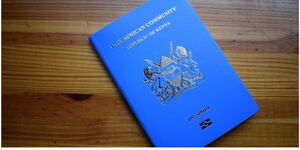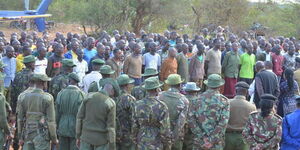The year 2020 will definitely go down in history as one of the toughest for Kenyans following the outbreak of the Covid-19 pandemic in March this year.
Simple everyday activities that have previously taken place in other years could not go on following stringent measures put in place by the government in order to curb the spread of the disease.
Kenyans had to learn to live and survive; completely shutting out of their lives previously important activities that had been part if their lives. This was important as it meant one had the least chance of contracting the virus.
Below are some of the normal things that Kenyans could not do in 2020;
1.) Attending church services
Churches across the country had to cancel their services in March following the coronavirus scare.
Most would transfer the services onto online platforms in order to exercise caution of large gatherings and be able to practice social distancing.
It is only in July that President Uhuru Kenyatta allowed for the reopening of places of worship, but restricting them to one-hour services and no more than 100 people at a time.
The President would, however, increase the number of those attending service to a third of their normal capacity in September.
2.) Roaming at night
Kenyans have not had the luxury of strolling the streets and going about their duties past 10 p.m. Save for those offering essential services, many Kenyans have been forced to plan their activities to fit within curfew hours.
The pronouncement of dusk to dawn curfew by President Uhuru Kenyatta on March 25, 2020, no doubt shocked many Kenyans.
"Effective Friday, 27th March 2020, a Daily Curfew from 7 p.m. to 5 a.m. shall be in effect in the territory of the Republic of Kenya," the president directed.
Although the curfew has since been relaxed from 10p.m. to 4a.m., with only essential service providers being allowed to move about during the restricted hours, lives of many individuals have been disrupted a great deal.
3.) Travelling at will
The Head of State also imposed a cessation of movement in and out of four main coronavirus “infected areas” including Nairobi, port city of Mombasa and the counties of Kilifi and Kwale.
During this time, only the movement of food supplies and other cargo was allowed.
Kenyans who wanted to travel upcountry to visit their relatives, attend burials or weddings could not travel due to the imposed ban.
4.) Attending school
Students in both primary and secondary schools have lost a better part of the academic year following the school closure in March. Attending school had all along been a normal thing for year, but this year things ere totally different.
Final year exams, usually taken in October and November, had to be cancelled, with stakeholders arguing that students lives would be put at risk if the schools were to be reopened in masses.
It was only in October that the government allowed a phased reopening for Grade 4, Class 8 and Form 4 students, who are expected to close school on December 23, 2020.
The rest of the classes will reopen school on January 4, 2020.
5.) Attending social gatherings
It was tough for Kenyans to attend to social gatherings like chamas, funerals, weddings among others, after the government restricted the same to immediate family members.
Currently, only 100 people are allowed to attend funeral services with only 15 allowed at the graveside. The duration of the burial must not exceed one hour and no food is allowed in funerals.
At the same time, weddings are restricted to 50 people with the food only allowed to the nuclear family.
6.) No imbibing in bars
Revellers were at a lose this year baring in mind that they could not stay in bars or restaurants past certain time following the closure of entertainment spots due to the pandemic.
Bars were shut in March, but soon began serving food to exploit a loophole allowing restaurants to serve drinks with meals.
The government has since stiffened measures for revellers this Christmas season including; hiring of a Covid-19 liaison officer, banning of dancing in clubs and sitting around the counter.
7.) Going to work
Soon after the Ministry of Health announced that they had recorded a patient zero in the country, most companies opted to shut down and send their employees home to curb the spread of Covid-19.
A section of Kenyans have since embraced working from their homes and using teleconferencing as a way to communicate with their colleagues at work. Many Kenyans have not been able to go to work regularly like they used to do back in the day.












